As we delve into the fascinating world of Montana’s gun laws, I can sense your curiosity and desire to understand the nuances of open carry in the great state.
In this comprehensive guide, you will discover everything you need to know about Montana’s open carry laws, concealed carry permits, and the legalities surrounding the carrying of firearms.
Who is this article for? Whether you’re a resident of Big Sky Country or a visitor keen to explore its vast wilderness, this guide is tailor-made for you.
In this article, I’ll be guiding you through the intricate maze of Montana’s gun laws, offering clarity and peace of mind in compliance with federal crime provisions.
- Related article: Montana Legal Guidelines
Buckle up as we journey together into the realm of Montana’s gun laws, and prepare to be enlightened with the knowledge necessary to navigate Montana’s legal landscape, while respecting civil power.
Understanding Montana Gun Laws: Open and Concealed Carry
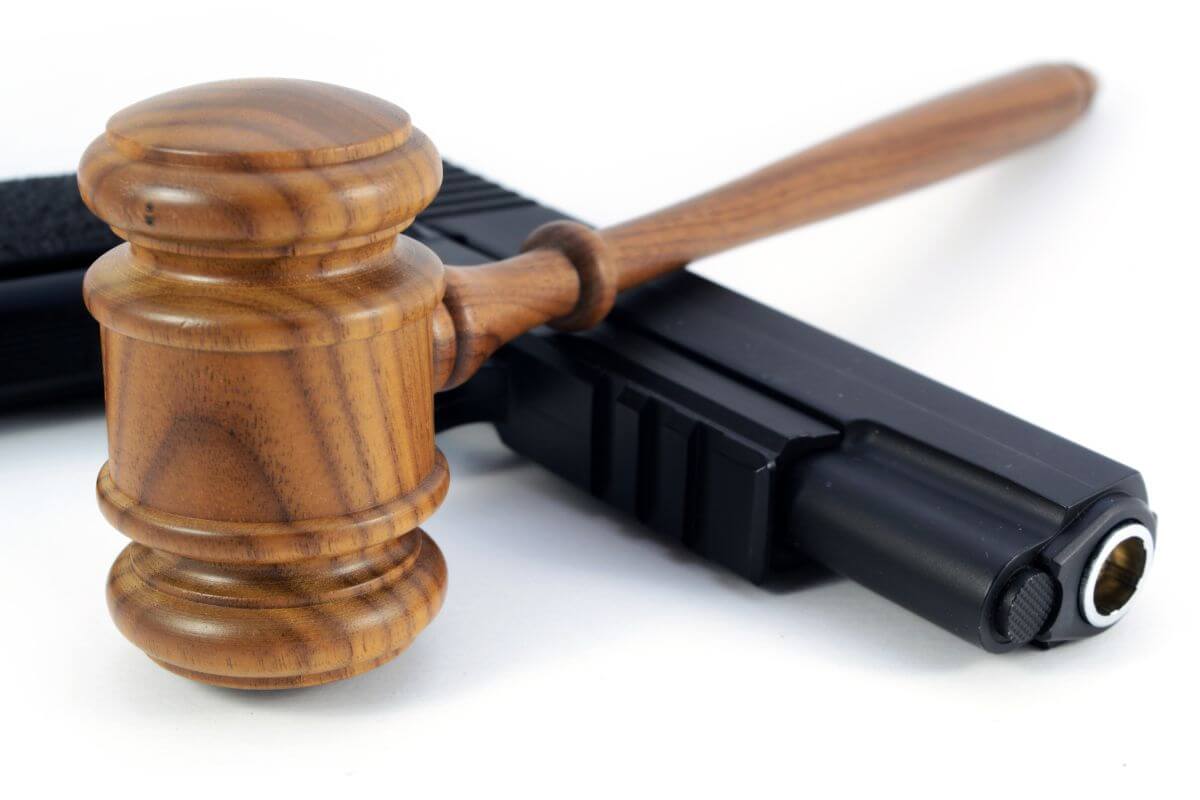
Montana is what we call a “shall-issue state”, meaning both permitless carry and concealed weapon permits are handled locally by the county sheriff’s office.
In Montana, residents have the freedom of constitutional carry, allowing them to carry without a permit.
And when it comes to purchasing firearms privately, there’s no permit required, no waiting period, and no registration. Plus, private sales don’t necessitate background checks.
However, in purchasing a handgun from a Federal Firearms Dealer, a background check is required. Although, if you hold a Montana Concealed Weapons Permit, you’re exempt from this check.
Open carry involves carrying an unconcealed weapon, visible for all to see. In Montana, both long guns and handguns can be openly carried, with no permit required.
On the other hand, concealed carry of firearms refers to carrying a firearm in public without it being visible, often concealed in items like backpacks, purses, or holsters beneath clothing.
Montana Open Carry: Is It Legal?
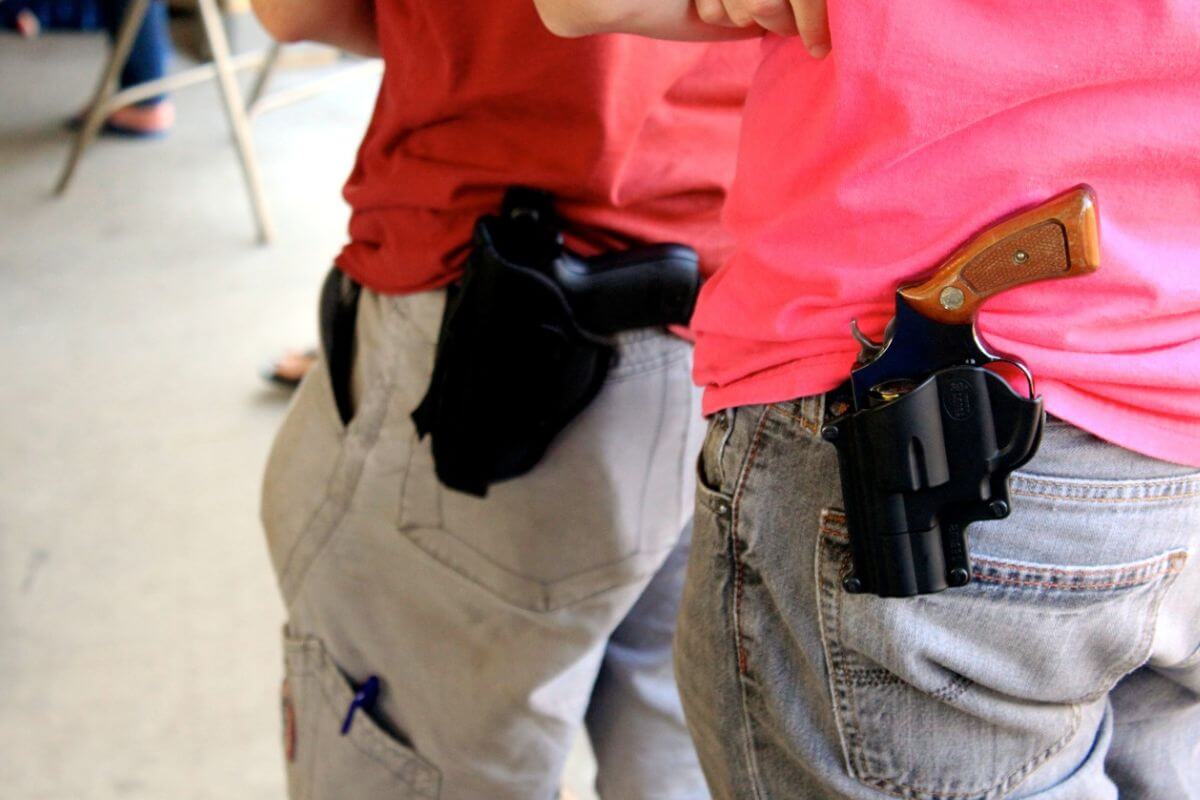
When it comes to open carry, this state doesn’t disappoint. It is legal to openly carry a firearm without needing a permit if you’re at least 18 years old and legally allowed to possess a firearm.
If you’re 18 years old and legally allowed to possess a firearm, you can openly carry it without needing a permit. Montana’s state law aligns with the federal minimum age for firearm possession.
Montana also allows 14-year-olds to openly carry or use a firearm in public when under the direct supervision of a parent, guardian, qualified firearms safety instructor, or an authorized adult.
Keep in mind that not all firearms are welcomed within Montana’s official boundaries. Possessing or utilizing machine guns and armor-piercing ammunition is considered a felony offense.
In a nutshell, Montana is a permissive open-carry state where you can proudly display your firearm without the hassle of obtaining a permit. Just remember to respect the restrictions on certain types of firearms.
Montana Concealed Carry: Is It Legal?
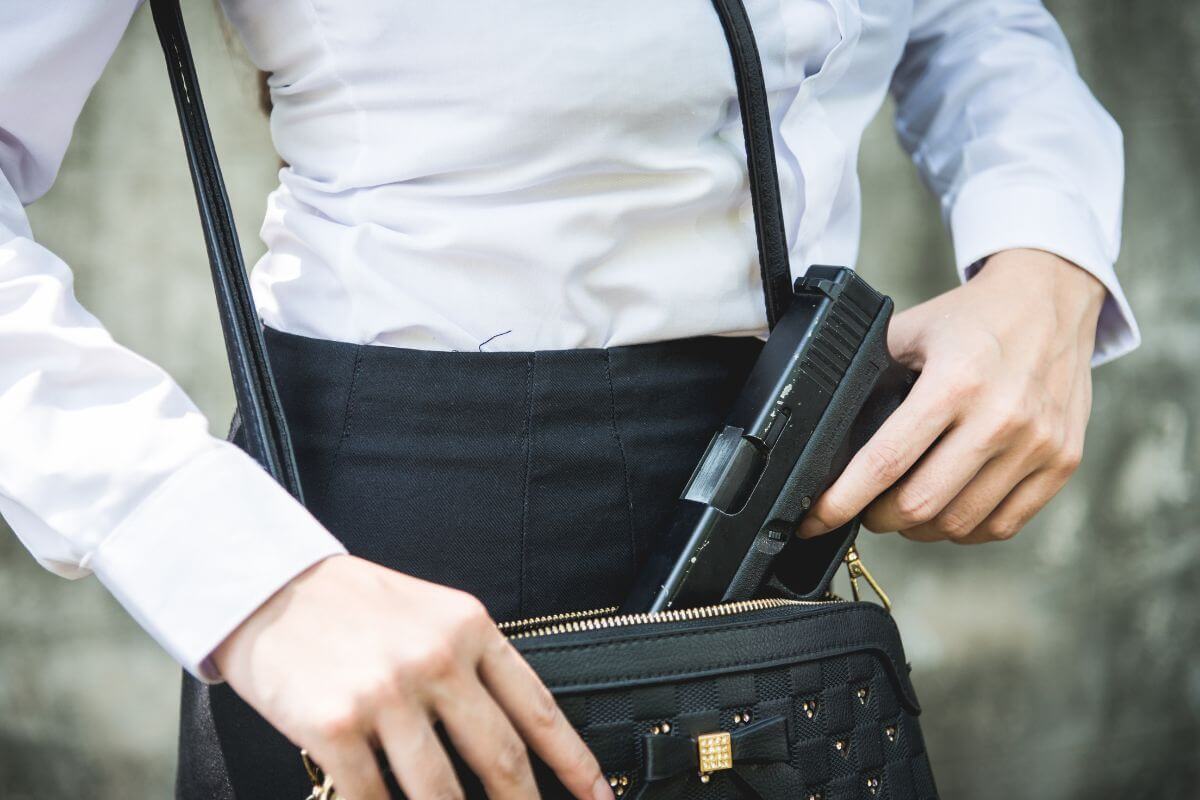
If you’re 18 years old and legally allowed to own a firearm, you can generally carry it concealed without a permit.
In certain parts of buildings that house state or local government offices, and in other designated areas with restrictions, a permit is mandatory for concealed carry.
A new law was signed on February 18, 2021, giving Montanans more freedom to concealed carry. This law, effective immediately, has eliminated many of the previous gun-free zones in the state.
Although Montana doesn’t require firearms safety training for concealed carry, if you want to apply for a Montana Concealed Weapons Permit (MCWP), you must demonstrate “familiarity with firearms”.
Non-residents don’t get the permit privilege in Montana and local authorities have the power to restrict unpermitted concealed carry in publicly owned structures.
Montana has lenient concealed carry laws, but there are always a few strings attached. Stay safe, stay responsible, and exercise those constitutional rights.
Defining ‘Familiarity With Firearms’
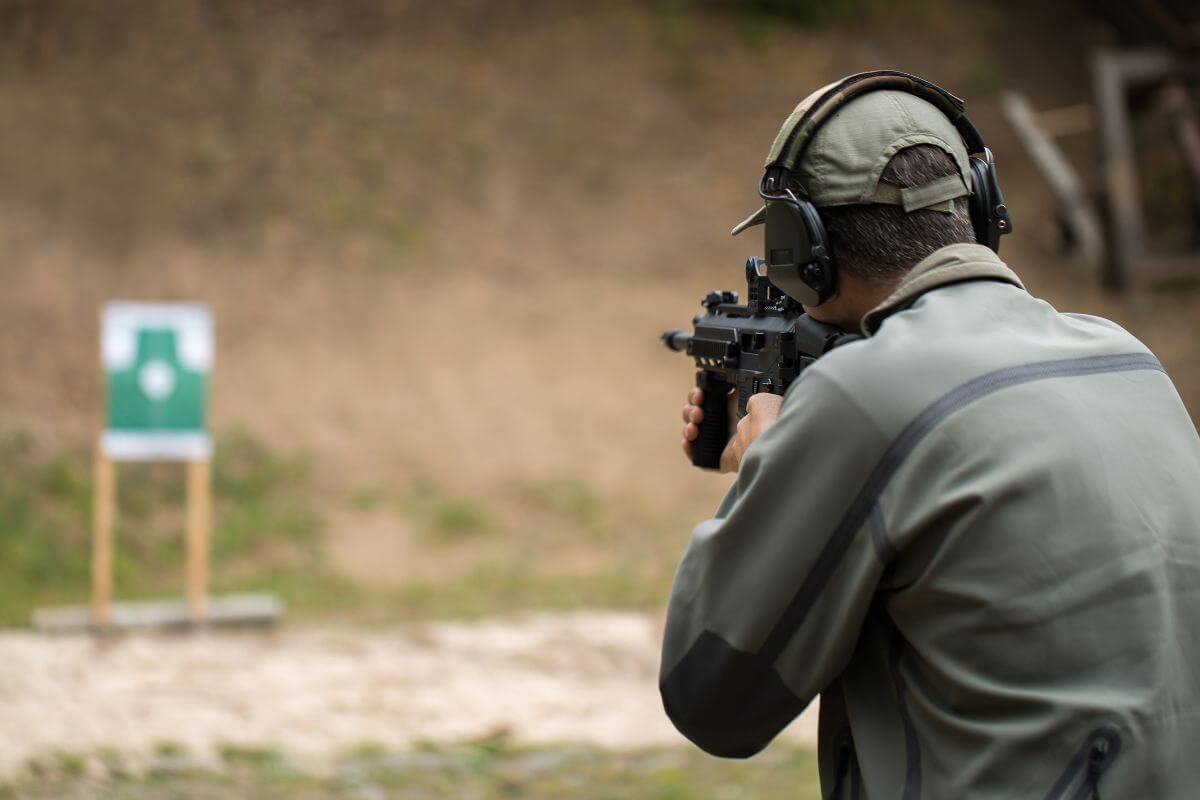
To obtain a Montana concealed carry permit, you don’t need to go through mandatory firearm safety training. However, the state does require you to demonstrate “familiarity with firearms.”
Applicants for concealed carry permits must demonstrate familiarity with firearms through:
- Hunter Education or Safety Course – Completion of a hunter education or safety course approved by the state’s wildlife agency or a similar agency in another state.
- Approved Firearms Safety Course – Completion of an approved firearms safety or training course by state agencies, national firearms associations, law enforcement, higher education, or certified instructors.
- Law Enforcement Course – Completion of a law enforcement firearms safety or training course offered or required for law enforcement personnel and approved by a law enforcement agency.
- Out-of-State License – Possession of a license from another state that allows firearm carry, concealed or otherwise, granted upon completing a course described above.
- Military Service Qualification – Providing evidence of being qualified to operate firearms, including handguns, during military service.
- Physical Test – Passing a physical test demonstrating familiarity with a firearm.
Montana’s Standard Concealed Carry Permit
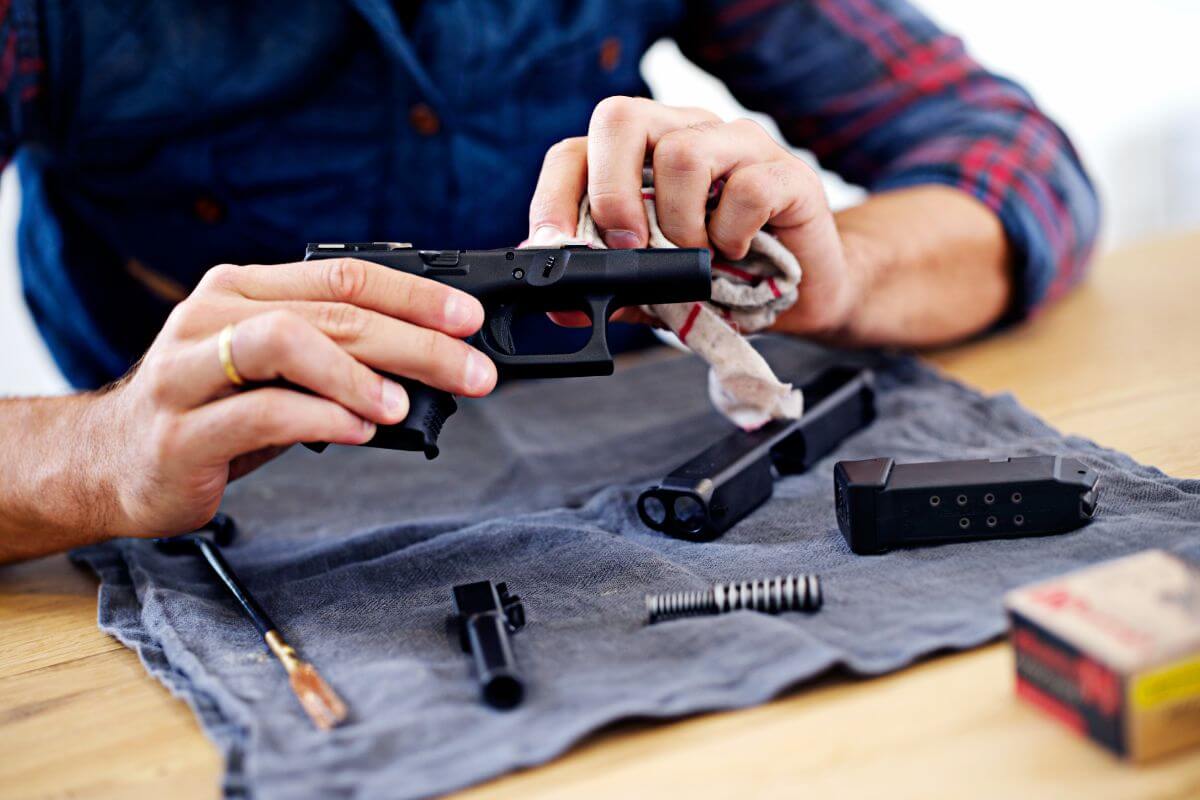
While open carry is permit-free in the state, Montana does offer a Standard Concealed Carry Permit or a Concealed Weapons Permit for those who want to carry their firearms discreetly.
So why would someone choose to obtain a concealed carry permit in Montana? Well, there are a few reasons:
- Reciprocity with Other States– Open carry is permit-free, but a concealed carry permit is beneficial for interstate travel, as some states only acknowledge concealed carry permits.
- Access to Certain Locations – Certain venues, like bars serving onsite alcohol, may limit concealed firearms. A concealed carry permit can offer legal flexibility in such cases.
- Background Checks and Training – Getting a concealed carry permit often includes background checks and firearm safety training, which is valuable for responsible firearm ownership.
- Peace of Mind – A concealed carry permit can offer peace of mind to those exercising their Second Amendment rights, ensuring full state law compliance.
Here are the qualifications for a standard concealed carry license:
- Meet Age Criteria – Must be at least 18 years old.
- U.S. Citizenship – Must be a U.S. citizen.
- Residency – Have been a Montana resident for a minimum of 6 months.
- Firearm Familiarity – Demonstrate familiarity with a firearm.
- Valid Photo ID – Possess a valid photo ID issued by the state, such as a driver’s license.
- Federal Law Compliance – Must also meet federal law requirements.
The cost for a concealed carry permit is $50, with an additional $5 charge for fingerprinting. Renewal fees are $25, and the permit is valid for 4 years.
Montana’s Enhanced Concealed Weapons Permit
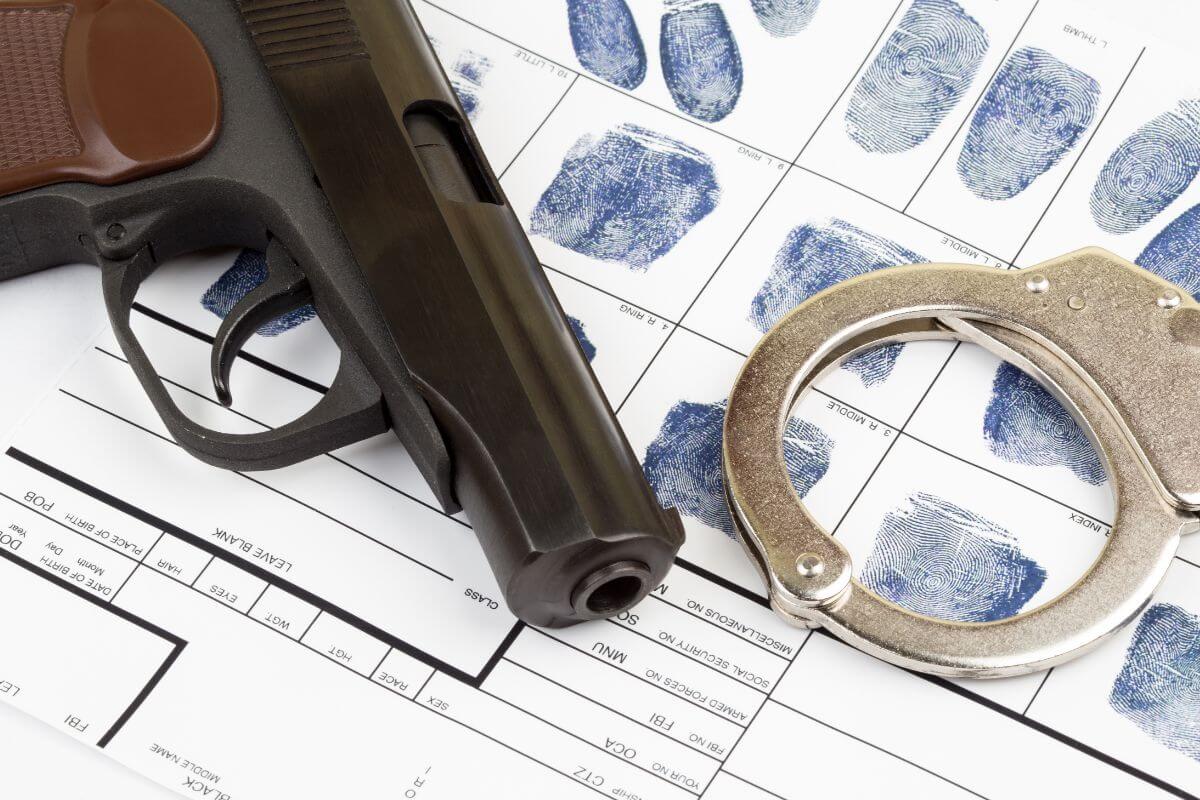
In 2023, the Montana Legislature introduced the Enhanced Concealed Weapons Permit, a 2nd-tier concealed weapons permit aimed at enhancing reciprocity with other states.
Unlike the standard concealed carry permit, applicants for an enhanced permit must meet specific criteria such as:
- Age requirement – Applicants must be at least 21 years old.
- Fingerprinting – Fingerprinting is mandatory as part of the application process.
- Firearms Safety Training – Applicants must provide proof of completing a firearm safety training course, including firing at least 98 rounds of ammunition.
- Citizenship and Residency – Applicants must be U.S. citizens or lawful residents and residents of Montana for at least six months.
- No Firearm Possession Prohibitions – Applicants must not be prohibited from possessing firearms under Montana or federal law.
While the state still issues concealed carry licenses for reciprocity or background check reasons, the enhanced permit offers an added level of convenience and flexibility.
Individuals aged 18 to 20 can apply for a restricted enhanced permit. Renewal of the enhanced permit is possible, and the permit itself is valid for 5 years.
County sheriffs have the authority to deny a permit if they believe the applicant poses a threat to the community due to mental illness or other factors.
Montana Concealed Carry Permit Application
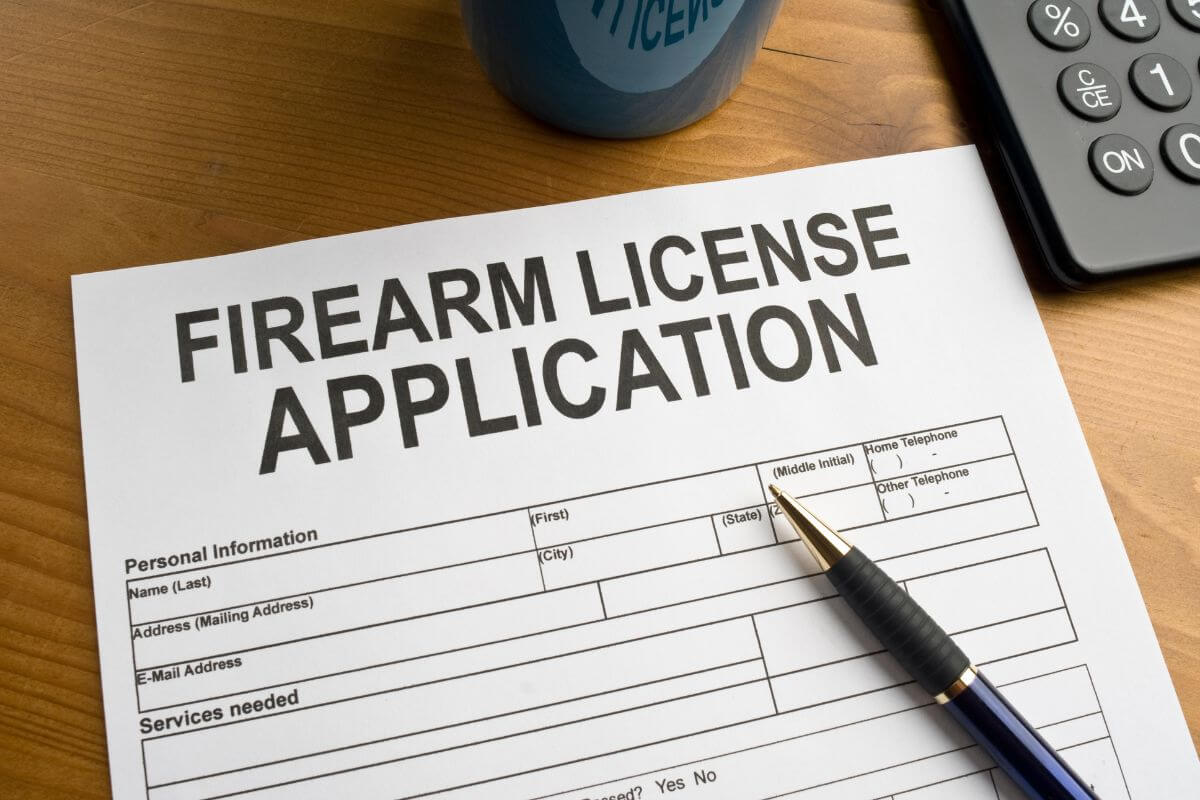
If you’re considering applying for a concealed carry permit in Montana, here are the steps you need to follow:
| Step | Action |
|---|---|
| Step 1: | If required, complete a firearms training course. |
| Step 2: | Download the application from the home county or obtain it from the local sheriff’s office. |
| Step 3: | Visit the local sheriff’s office with the following requirements: |
| – Three completed, signed reference forms | |
| – Photo ID | |
| – Certificate from the firearms course | |
| Fingerprinting will be conducted. | |
| Step 4: | Await notification of the application’s approval status. |
Permit Denial Reasons
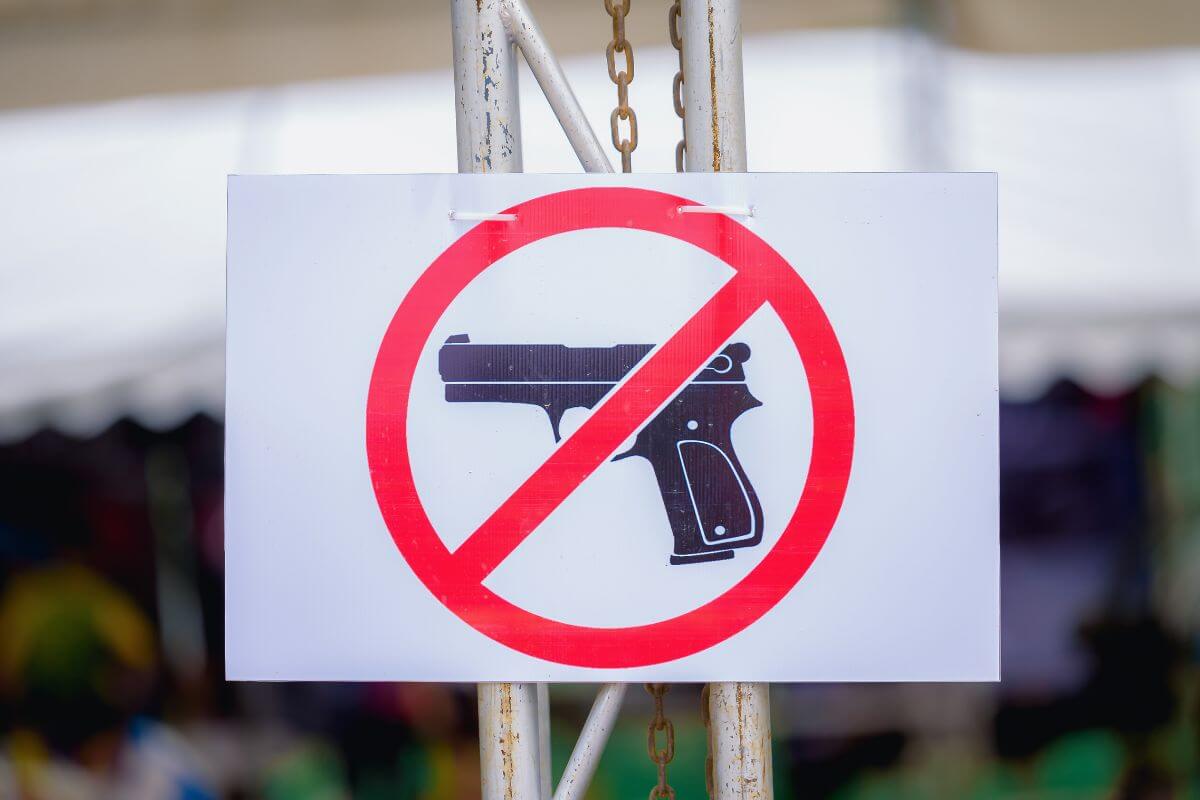
It’s important to note that not everyone who applies for an enhanced concealed permit is granted one.
The sheriff has the authority to reject a request if they have valid reasons to believe that the applicant might endanger the peace and order of the community by carrying a concealed weapon.
If your application is denied, the sheriff is required to provide a written explanation of the specific reason for the denial, unless you are currently under a criminal investigation.
This ensures transparency and allows you to understand why your application was not approved.
Here’s a list of possible reasons why your concealed weapon permit application could be denied in Montana:
- Ineligibility under Montana or federal law – If you’re not eligible to possess or receive a firearm according to Montana or federal law.
- Pending criminal charges – If facing serious charges with potential prison time in any state or federal court.
- Prior felony conviction – If you’ve been convicted in any state or federal court of a crime punishable by more than one year of incarceration;
- Recent concealed weapon convictions – If you’ve been convicted of carrying a concealed weapon under the influence of alcohol or in a prohibited place within the last 5 years and haven’t been pardoned.
- Outstanding arrest warrant – If there’s an arrest warrant issued for you in any state or by the federal government.
- Deemed an unlawful user of substances – If a court has deemed you an unlawful user of intoxicating substances and you’re under any form of court-ordered supervision or treatment.
- Mental health adjudication – If a state or federal court has adjudicated you as mentally ill, “defective,” or disabled and you’re still subject to a disposition order.
- Dishonorable discharge – If you’ve received a dishonorable discharge from the United States Armed Forces.
- Conviction for serious crimes – If you’ve been convicted in any state or federal court of a crime involving:
- Intentional homicide
- Serious bodily harm or bodily injury
- Unlawful restraint
- Sexual abuse
- Non-consensual sexual intercourse or contact
Those denied a permit, except for specific convictions, can still qualify for a concealed weapons permit if they meet additional eligibility criteria after their rights are restored under Montana’s Constitution.
Understanding Montana’s Concealed Weapon Permit Reciprocity
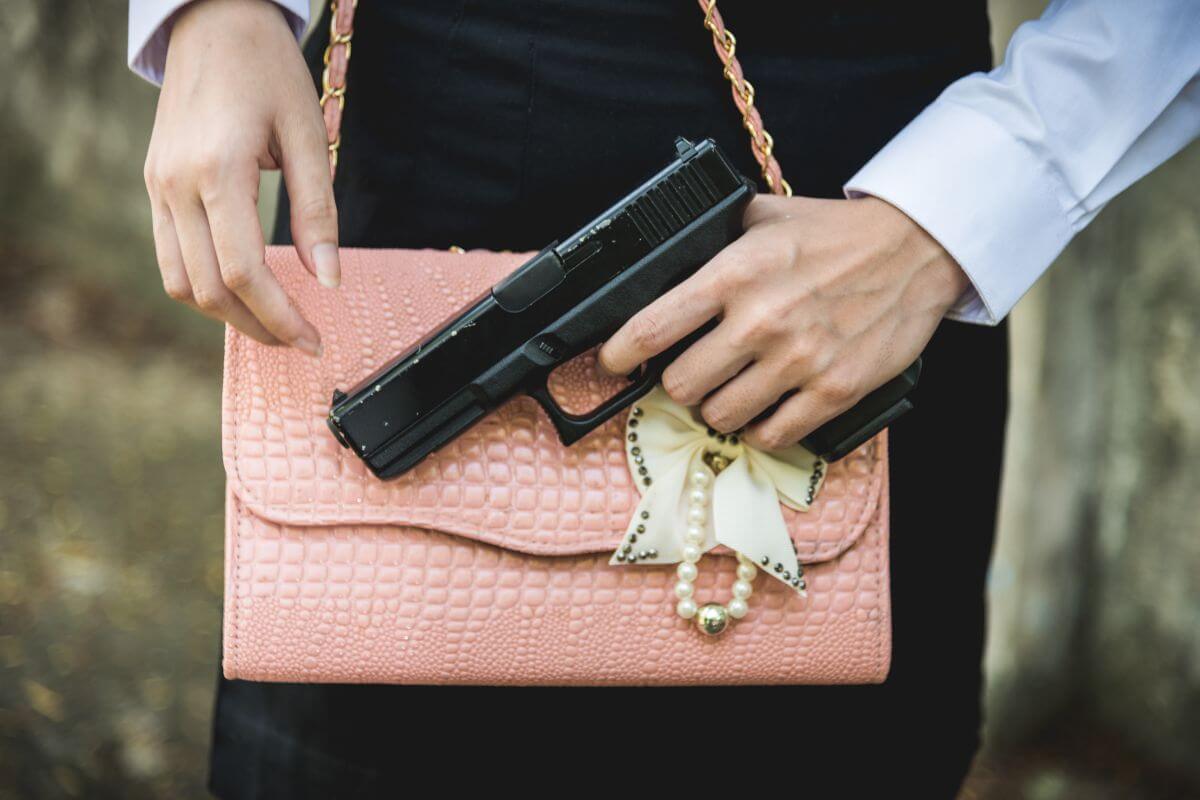
If you’re planning to carry a concealed firearm while visiting or residing in Montana, it’s crucial to understand the state’s concealed weapon permit reciprocity.
Montana recognizes concealed weapon permits from other states under specific conditions, so here’s what you need to know:
1. Immediate Possession of Permit – To have your out-of-state concealed weapon permit recognized in Montana, it must be in your immediate possession at all times when carrying a concealed weapon.
2. Official Photo Identification – You must carry official photo identification. This identification serves as proof of your identity and complements your out-of-state concealed weapon permit.
3. Criminal Records Background – Montana extends reciprocity to concealed weapon permits from states that require a criminal records background check of permit applicants before issuing the permit.
4. The Importance of Reciprocity – Reciprocity agreements between states ensure that lawful concealed weapon permit holders can carry their firearms across state lines without violating local laws.
5. Check State-by-State Reciprocity Agreements – Check reciprocity agreements between your state and Montana, as they can change. Stay informed to comply with Montana’s concealed carry laws.
6. Respecting Montana Laws – Even with reciprocity, you must adhere to Montana’s concealed carry laws and regulations while within the state. Familiarize yourself with the local laws to avoid any legal issues.
7. Staying Informed – Keep yourself updated on any changes to Montana’s concealed carry laws and reciprocity agreements to ensure you’re always in compliance when carrying a concealed weapon in the state.
Remember, understanding Montana’s concealed weapon permit reciprocity is crucial for a safe and legal experience when carrying a concealed firearm in the state.
Always follow the specific requirements outlined in the reciprocity agreement between your state and Montana to avoid any legal complications.
Montana Open and Concealed Carry: Where Is It Legal?
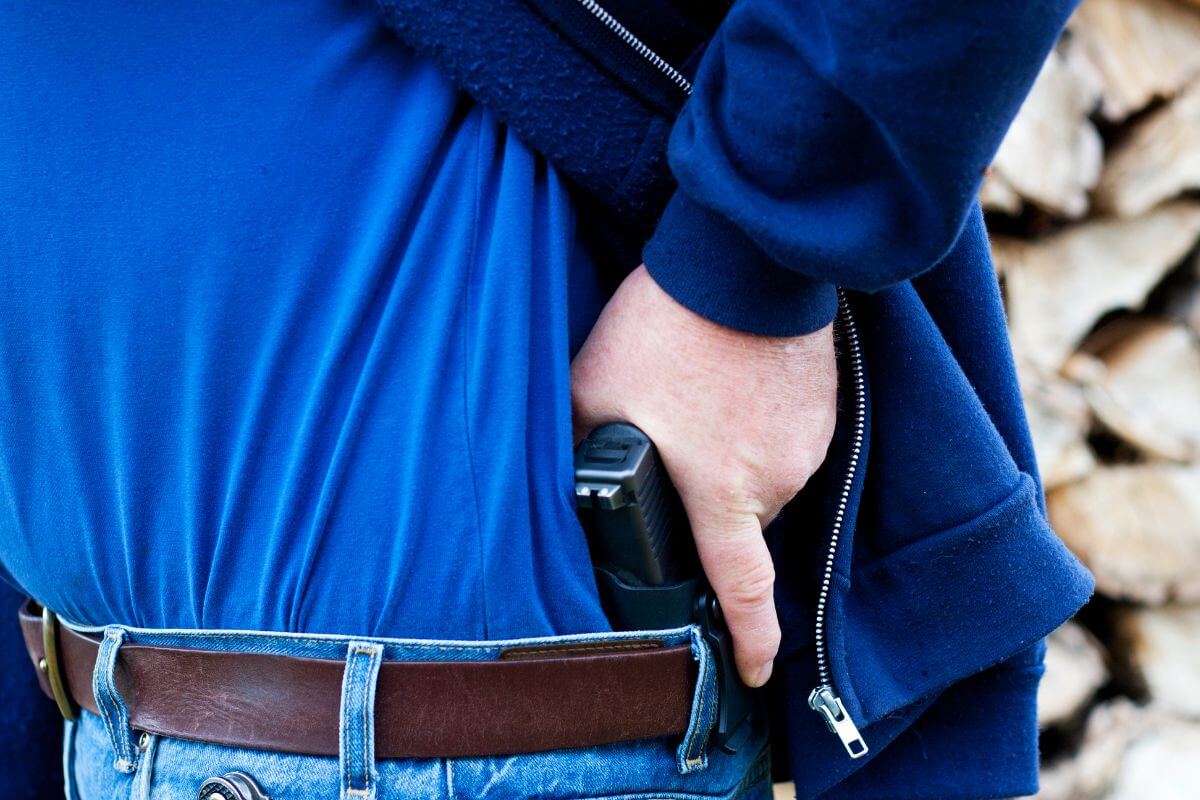
When it comes to open and concealed carry in Montana, there are specific places where it is legal and others where it is prohibited.
To ensure you stay on the right side of the law, here’s a breakdown of where you can and cannot carry firearms in the state:
- Restaurants – Open carry is permitted in Montana’s restaurant areas, but it’s prohibited if you’re under the influence of alcohol or if there’s a posted sign restricting firearms possession.
- Personal Vehicle – You have the legal right to open carry in your private car in Montana.
- Roadside Areas – Open carry is allowed in the picturesque roadside areas of Montana, ensuring you can enjoy the scenery while exercising your Second Amendment rights.
- Parks and Forests – Feel free to open carry in Montana’s parks, forests, and wildlife management areas, ideal for outdoor enthusiasts and hunters.
- Places of Worship – Montana’s gun control laws do not prevent those in charge of places of worship from prohibiting firearms possession, so be aware of individual restrictions in these locations.
Concealed carry is allowed without a permit outside the official boundaries of towns or cities or the confines of logging, lumbering, and mining.
It’s also permitted in railroad camps while doing any of the following: fishing, hunting, hiking, backpacking, farming, ranching, or other outdoor activity in which guns are often carried for recreation or protection.
It’s always best to familiarize the specific laws and regulations of each location to ensure compliance. Federal laws play a role in determining where the possession of firearms or open carrying is prohibited.
By understanding these regulations and respecting the boundaries, you can stay in compliance with Montana’s open and concealed carry laws while keeping yourself and others safe.
Montana Open and Concealed Carry: Where Is It Illegal?
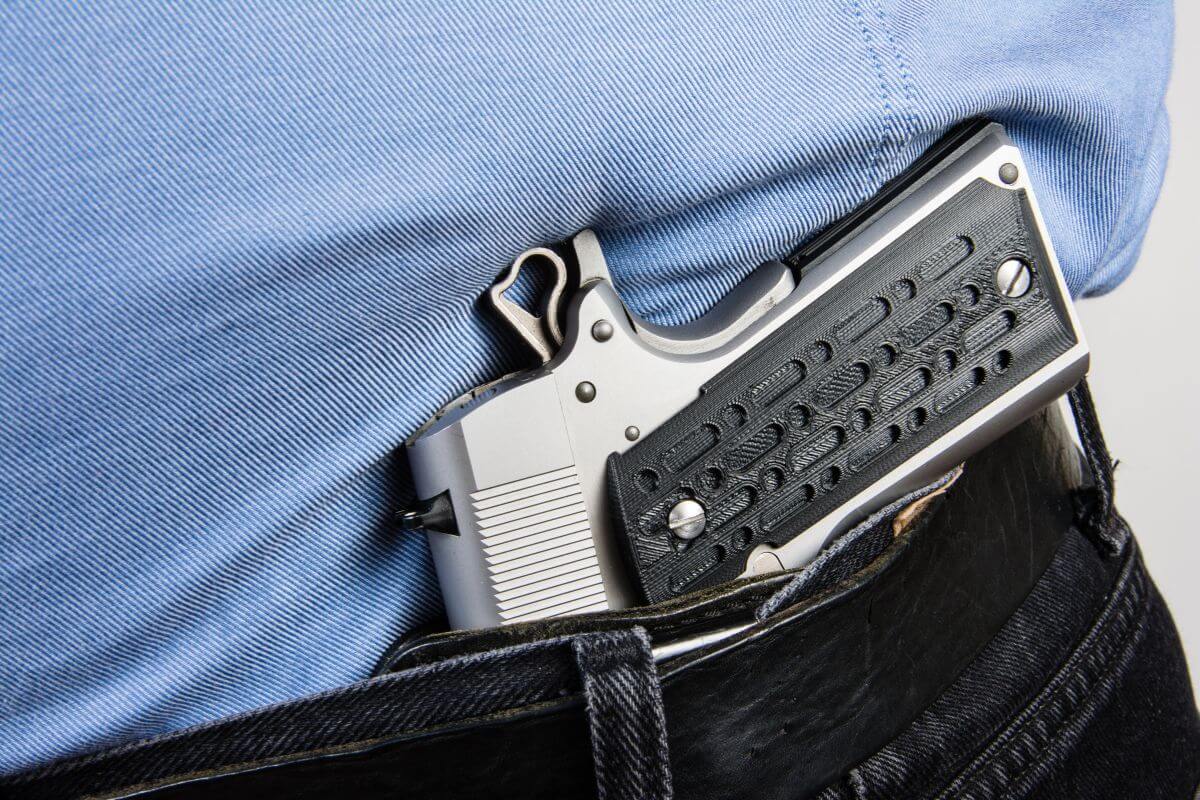
There are certain restrictions to keep in mind regarding open and concealed carry of firearms. Whether you’re a resident or a visitor, it’s important to know where firearms are not permitted.
These are the places with restrictions on carrying weapons in Montana:
- Government Offices and Restricted Areas – Portions of buildings used for state or local government unit offices and related areas that are restricted.
- Bars – Rooms where alcoholic beverages are served and consumed under an on-premises consumption license. When considering Montana alcohol guidelines, it’s crucial to be mindful of restrictions.
- Secure Treatment Facilities – Secure treatment facilities operated by the Department of Public Health and Human Services.
- Banks – You cannot carry in banks or in any financial institutions, credit unions, or savings institutions.
- Correctional Facilities – Correctional or treatment facilities operated by or contracted with the Department of Corrections, and under the Department of Public Health and Human Services.
- Law Enforcement Facilities – Detention facilities or secure areas within law enforcement facilities owned and operated by cities or counties.
- Airport Security Checkpoints – Areas at or beyond security screening checkpoints regulated by the Transportation Security Administration in publicly owned commercial airports.
- Federal Buildings – Buildings owned and occupied by the United States.
- Military Reservations – Areas on military reservations owned and managed by the United States.
- Private Property Restrictions – Private properties where firearms are expressly prohibited by the property owner or possessor.
- Courtroom Restrictions – Courtrooms or areas within courthouses used by court personnel as ordered by a justice of the peace or judge.
- School Building Restrictions – School buildings as determined by campus authorities ensure the safety of individuals present in educational or natural settings.
- Public Transport – Open carrying, including on trains, is not permitted in public transport.
- Public Buildings – Open carrying is prohibited in any public building in Montana.
- Prohibited Places – The possession of firearms or open carrying is not allowed in areas that federal laws of the United States do not permit.
Montana restricts individuals from carrying firearms, whether openly or concealed, within state game preserves. Nevertheless, the Director of Fish, Wildlife, and Parks holds the authority to grant permits.
Landlords, motel, or hotel owners are prohibited from using contracts or other means to prohibit tenants or guests from possessing firearms on the premises, as long as it is permitted to the tenants or guests.
Montana Open and Concealed Carry Law Final Thoughts
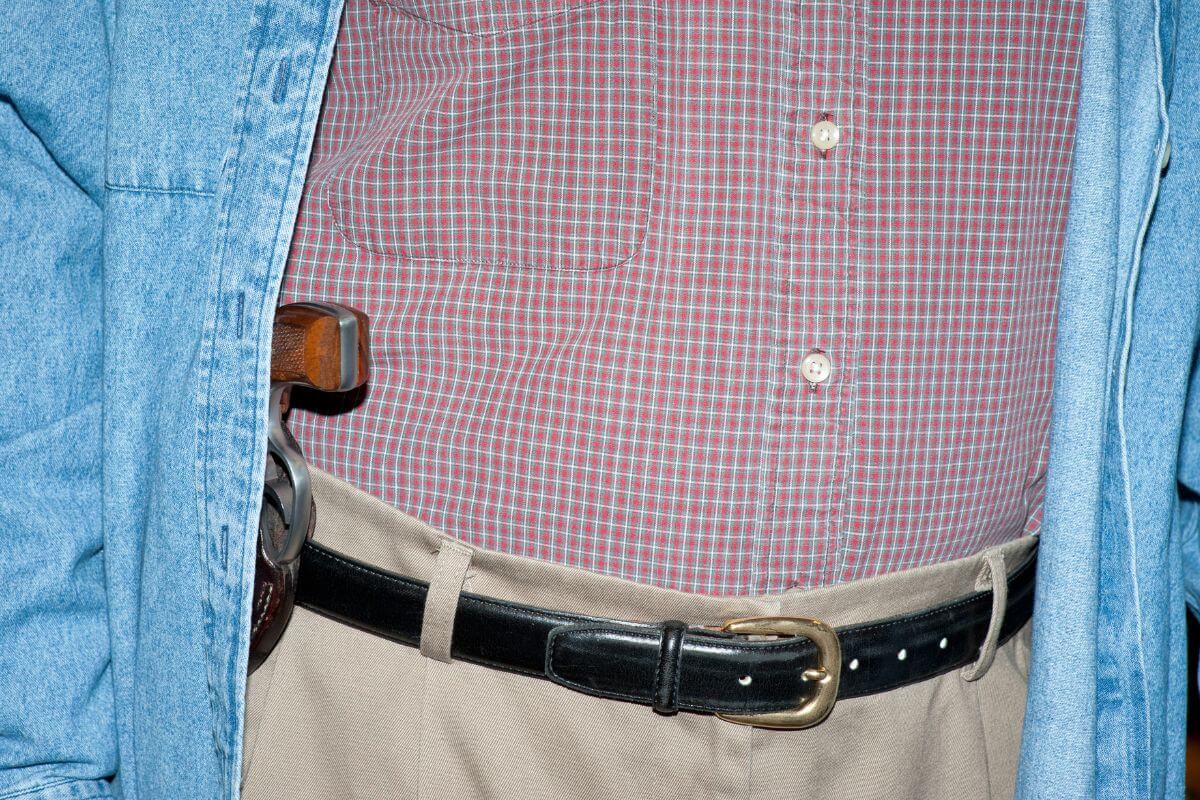
In Montana, the right to bear arms is deeply ingrained in its culture and legal framework, but it’s vital to stress the responsibility in educational settings, especially with students and minors.
Montana’s status as a “shall-issue state” provides residents with the freedom of constitutional carry, allowing for open carry, making unconcealed carrying a common sight on many public occasions.
However, the purchase and possession of firearms come with various provisions, including background checks when purchasing from a Federal Firearms Dealer and restrictions on certain types of firearms.
When openly carrying a firearm, it’s essential to be aware of the minimum age requirements and the rules surrounding minors’ possession under supervision, particularly in educational institutions.
Concealed carry offers flexibility, but it’s crucial to understand that while open carry is permit-free, concealed carry permits are required in specific locations, such as government units, schools, and banks.
If considering concealed carry in Montana, demonstrating “familiarity with firearms” is a requirement, and the state offers enhanced concealed weapons permits, with its own set of qualifications and benefits.
Compliance with local laws and regulations is essential, as reciprocity agreements can change, impacting where and how you can carry concealed firearms.
Always adhere to the laws and regulations, respect private property owner restrictions, and prioritize safety, whether engaged in unconcealed carrying on public occasions or carrying in schools.
Montana Open and Concealed Carry Law FAQs
1. Who Cannot Possess a Firearm?
According to federal regulations, individuals are typically not allowed to buy or have firearms if they have a felony conviction and certain domestic violence misdemeanor convictions.
People under specific court orders related to domestic violence or a severe mental health condition, “adjudicated as a mental defective” are also prohibited from owning or purchasing firearms.
2. Do I Need a Permit to Conceal Carry in Montana?
Starting in February 2021, Montana ceased mandating a permit for concealed weapon carrying in public.
Consequently, the state grants firearm permits to individuals who are legally eligible to possess them to do so openly in public, without undergoing a background check.
3. What Is the Age Requirement for Concealed Carry in Montana?
In Montana, you must be 18 years old to obtain a concealed carry permit. County sheriffs must issue permits to qualified applicants without the ability to deny them if they meet the necessary qualifications.
However, there are exceptions, such as disqualifying criminal history, that may lead to a denial.
4. Can I Open Carry Every Type of Firearms in Montana?
Not all types of firearms are lawful for open carry in Montana. These are the types of firearms that are prohibited:
- Machine guns
- Firearm silencers
- Armor-piercing ammunition
- Sawed-off firearms
- Rifles with a barrel longer than 16 inches or with a total length of more than 26 inches
- Shotgun gun with a barrel length longer than 18 inches or more than 26 inches total length
To quench your fascination with Montana and gain deeper insights, stay connected and explore these captivating articles:

